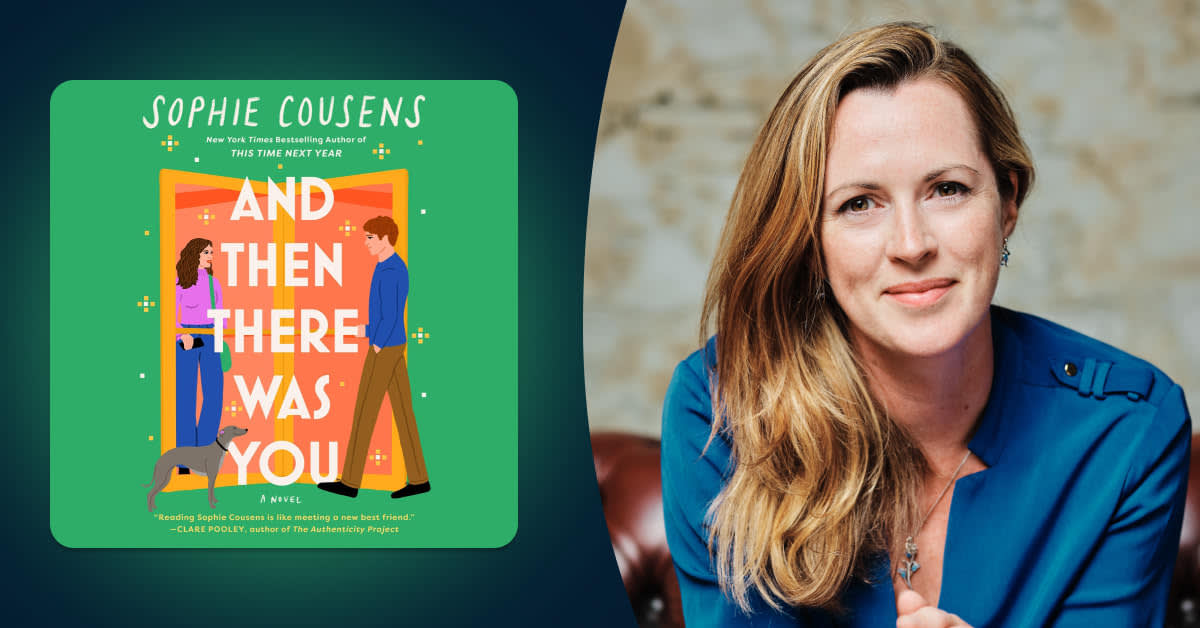While the words “economic” and “thriller” may not make for the most natural of pairings, that’s what we have on our hands with Graham Moore’s latest work of historical fiction, The Wealth of Shadows. So much has been written about World War II, but Moore, who is also the Academy Award-winning screenwriter of The Imitation Game, managed to find a fresh angle. I learned a lot from this listen, while having the pleasure of also being riveted by it. Economic warfare is sexier, and more consequential, than you think: Control the resources, control the world. This is the story of the largely anonymous US Treasury Department employees who waged that war—and won it.
Phoebe Neidl: How did you first discover Ansel Luxford, and what about this largely unknown “middle-aged tax attorney” made you decide he would be the perfect protagonist for your novel?
Graham Moore: It's always exciting to me when I'm digging into a research topic and I come across a name I'd never heard before—and even more exciting when I keep on digging and find that the same unknown name keeps popping up again and again. With Ansel, as soon as I started reading about the economic warfare behind WWII, it felt as if suddenly I was seeing his name everywhere.
Ansel's name was among the attendees at the Bretton Woods conference, the event which now comprises the book's climax. His name popped up at all these White House meetings during the war, as they were determining how the US might finance the British and French armies while simultaneously financing its own. And his name was even included among the Treasury Department employees who staged a secret break-in at the State Department to find evidence that proved there were Nazi sympathizers conspiring to help Germany within the American government.
I kept asking myself, “Who was this guy, and how had I never heard of him before?” When I found that there were no obituaries published about him after his death, I got even more curious. So, I tracked down his three children, who are all still with us.
Ansel's son, Ansel Jr., was the hardest to reach. He's a sheep herder living in rural Montana, and he only communicates via a satellite phone. "My sister told me you'd be calling," he said when I finally reached him. "She said you want to write a book about my dad?" I said I did. "Is this about how my dad was secretly a spy?" he said. I was stunned. "Well," I think I muttered, "it is now."
And that's the moment when the tale of Ansel Luxford grew much stranger. And it was the moment in which I knew that the book I was writing was going to be about him.
This is the second time Johnathan McClain has narrated one of your books. What is it about his voice that makes him a great fit for your stories?
A confession—Johnathan isn't just my favorite narrator, he's also a dear friend and trusted creative collaborator. In fact, he and I cowrote my second film, The Outfit. So, turning over my prose work to him is the easiest decision in the world, because he knows my authorial voice so well, and he understands my language and how I use it better than maybe anyone else in the world.
I was amazed at how thrilling and comprehensible you made economic theory and economic warfare in your story. How challenging was it to boil these complex ideas down into dialogue and prose? And were there any favorite novels or writers you looked to for inspiration?
I think the only thing harder for me than trying to communicate complex economic ideas to an audience was having to first learn them myself! I had no economic background whatsoever before this book, so the learning curve was steep. But in a way, that's the most fun part of my work—I get to spend months and years diving really deeply into a subject that I know little about, learning a ton, and then trying to turn that all into a narrative. And then working to convey the big picture ideas to an audience that might be in the same position I was in before my research began.
In a sense, that's how I look at it, "How would I explain this to myself two years ago, before I'd learned all this material?" Because, I promise, my readers are smarter than I am, so if I can understand it, then I'm sure they can too.
This has come up a lot in my work—writing about Thomas Edison's light bulb designs in The Last Days of Night or Alan Turing's cryptography in The Imitation Game—and the thing I'm most committed to is really trying to welcome the audience into big, complex ideas. I believe so deeply that one should never, ever condescend to the reader. Never say that something is "too complex" for a reader to understand—that's a cop out! I know that a given topic might, in theory, seem quite esoteric—the 1930s German bond market, say, in this novel—but an audience will start to care about it if characters they're attached to care about it. The structure of specific German bonds really matters to Ansel Luxford, our main character. And if I've done my job properly and placed the reader firmly inside his head, and inside his heart, then she'll want to understand why these bonds matter so much to him and why his whole life is riding on them.
I think the SF novelist Neal Stephenson is one of the great modern masters of taking phenomenally complex intellectual ideas and turning them into pulse-pounding thrillers—his book Cryptonomicon was a huge influence. Similarly, the novelist David Mitchell is so brilliant at taking subjects that might seem impossible to get my head around—like all the bits of music theory in Cloud Atlas or Japanese temple design in The Thousand Autumns of Jacob de Zoet—and rendering them with such emotional weight that I don't even realize, as I'm reading, how much I'm actually learning.
Like Imitation Game, this is a story about how some of the most consequential battles are fought off the battlefield. What draws you to these types of stories?
I think I've always been drawn to unexpected POVs on stories we only think we understand. WWII is one of those topics that has generated a simply endless volume of literature—there is no shortage of great WWII novels. But for whatever reason, I only get excited when I find some new lens on an event—like, "Oh, what if we tell the story of the invention of the light bulb from the perspective of the patent lawyer in charge of suing Thomas Edison?" as in The Last Days of Night. Or, in the case of this novel, "What if we tell the story of WWII from the perspective of a Midwestern tax attorney who joins the Treasury Department on a top-secret mission to crash the Nazi economy?" It's a perspective on the war, and that period in history, that I'd never seen before—and that's what gets me so enthused.
In a way, maybe it's my response to being a bit bored by "Great Men of History" stories—telling history by focusing on the folks at the top of the pyramid, the presidents and prime ministers and such. I'm more interested in the grunts, the seemingly faceless bureaucrats who—as in the case of Ansel Luxford—turn out to have stories even more fascinating than so many folks who are much better known.
What are you most excited about listeners discovering in this novel?
The novel opens in 1939, and if you spend even an afternoon flipping through the front pages of any major American newspaper for each day of that year, you'll find a world seemingly on the brink of apocalypse. It's almost unfathomable to me, in 2024, what it must have felt like to live through that period, when the world we thought we knew really was crumbling, and it was very much unsure if we as a human civilization would survive. The war seems so long ago now, and its outcome taken for granted—of course, the good guys won! But the part that always makes me shudder is when I work to get inside the head of somebody—a parent, a father—living in 1939, and I find myself realizing that no, it was in no way obvious that the good guys were going to win. Just the opposite.
This is a book about a guy who wakes up every day to face the sickening reality that just maybe civilization is ending—and who decides to do something about it.
Author photo by Ashley Randall.








